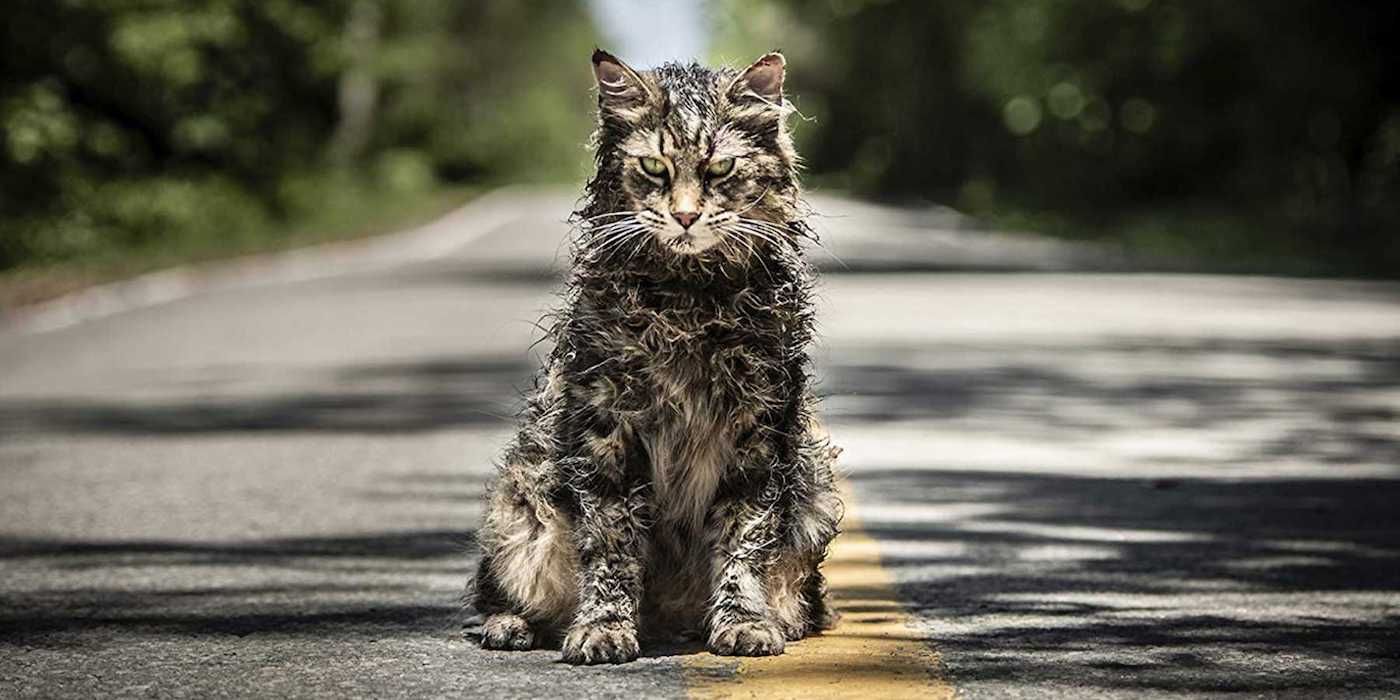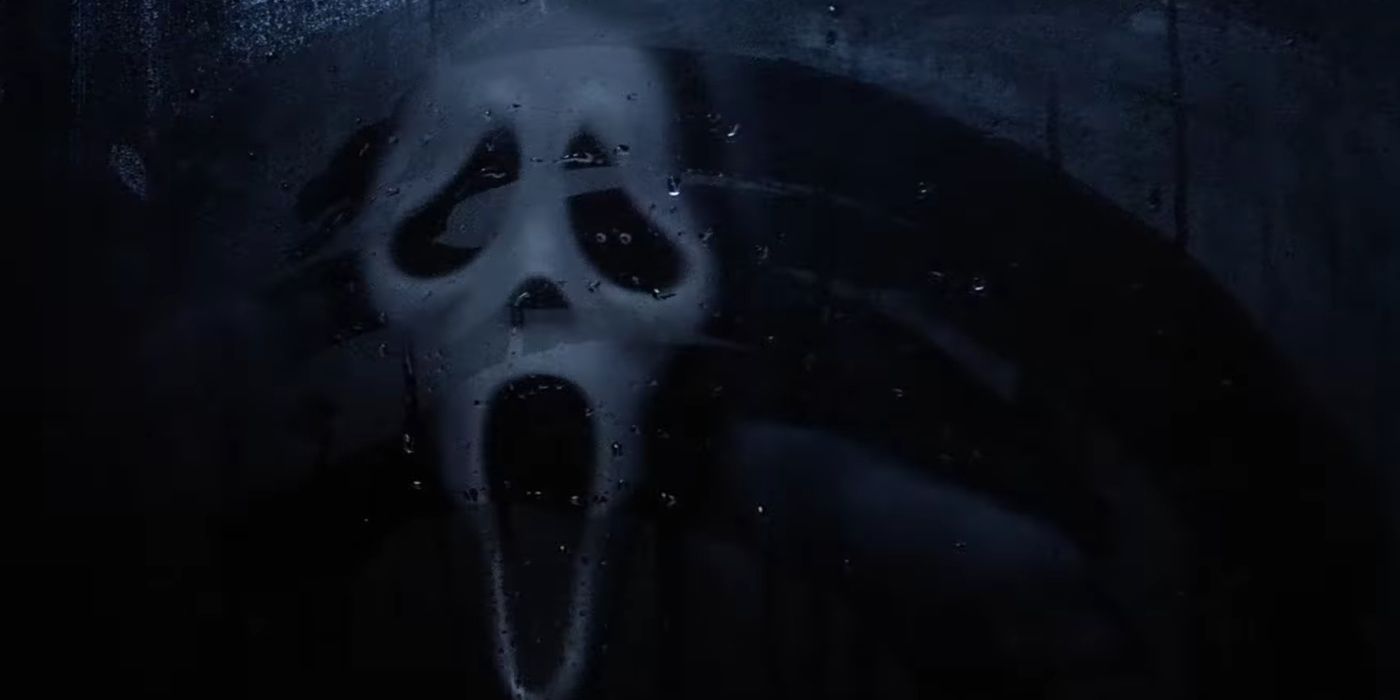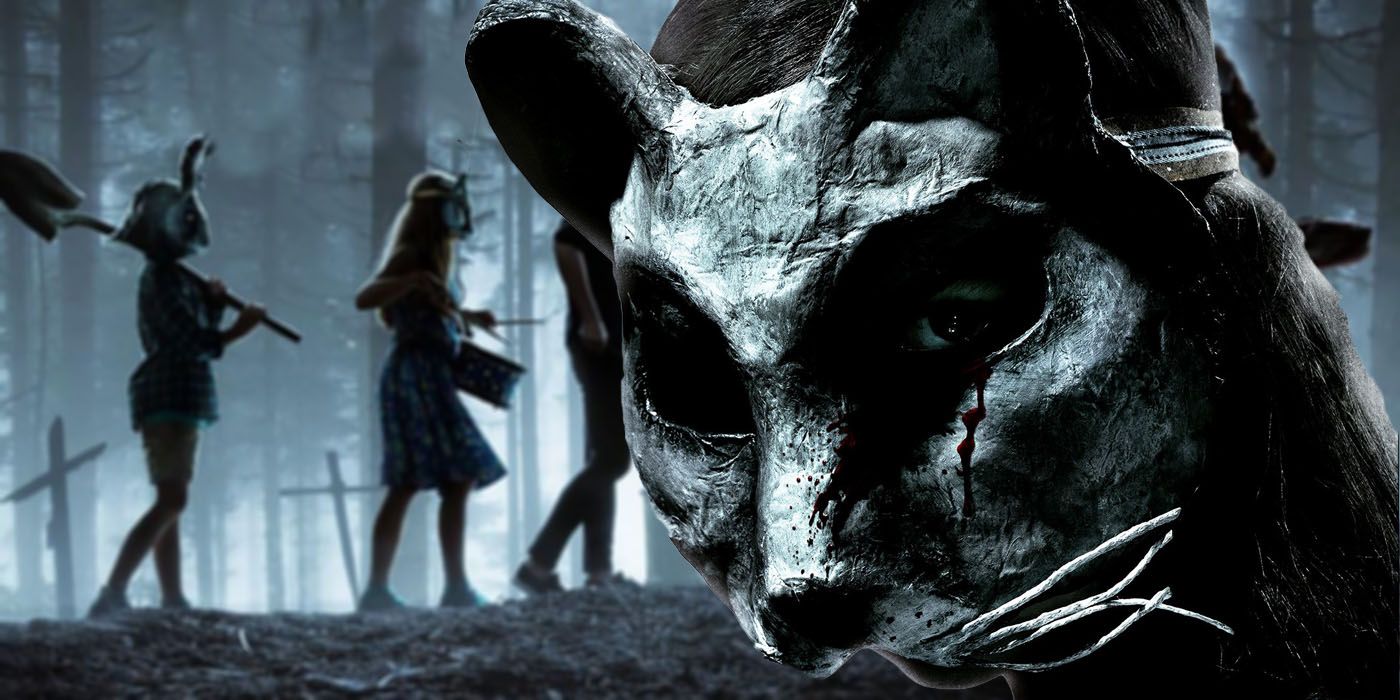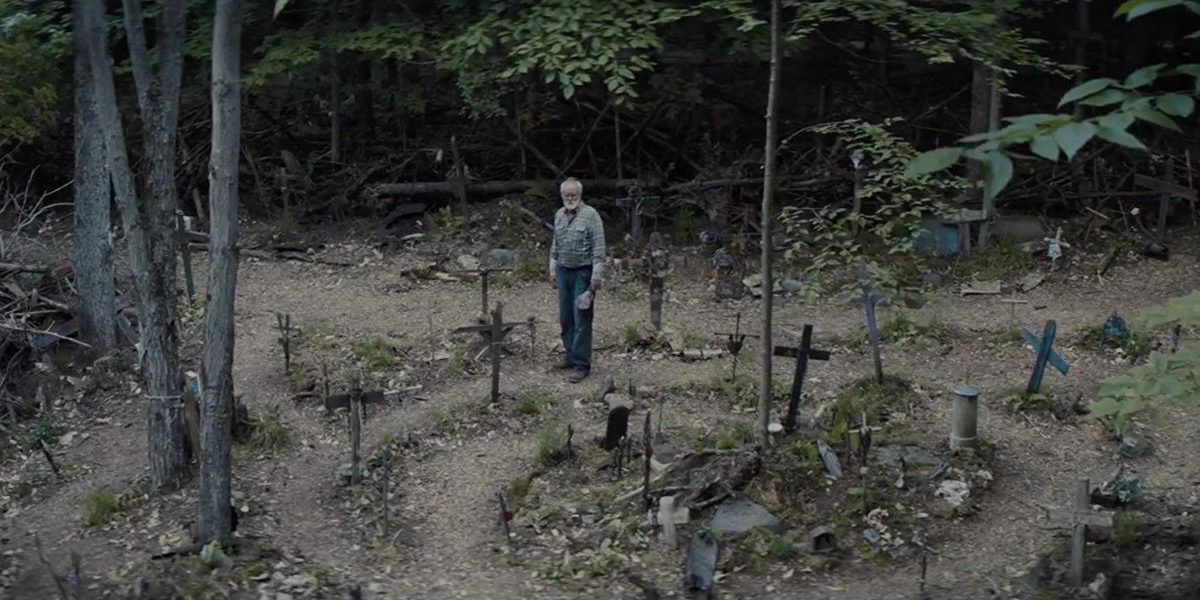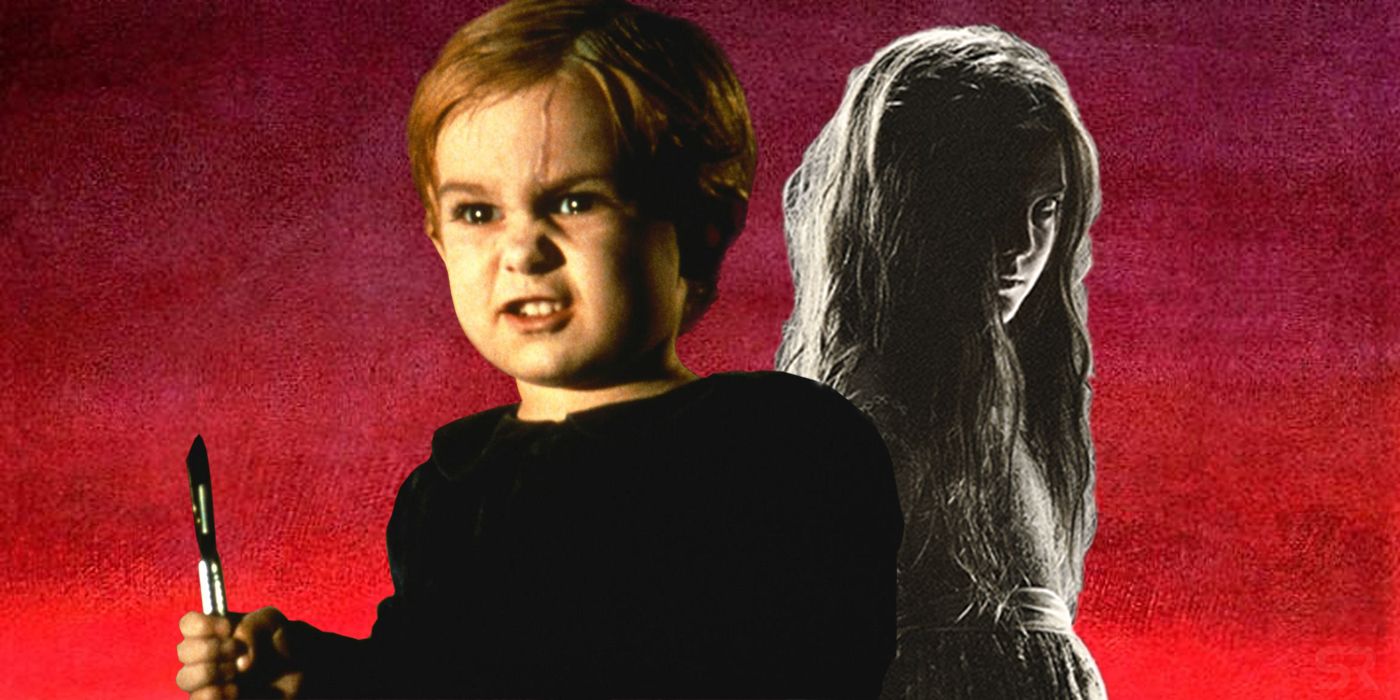The Stephen King renaissance began with It and continued with TV shows like Castle Rock and films like the 2019 remake of Pet Sematary. Inspired both by the original Stephen King novel and the 1989 film directed by Mary Lambert, the new Pet Sematary was a hit at the box office, grossing over $112 million worldwide, against a budget of just $21 million.
Pet Sematary was directed by the team of Kevin Kölsch and Dennis Widmyer, who were previously responsible for the trippy horror film, Starry Eyes, as well as several episodes of the third season of Scream, based on the popular Wes Craven slasher saga. While promoting the home video release of Pet Sematary, Kevin and Dennis spoke to Screen Rant about the film and their desire to return to the essence of Stephen King's original novel while introducing the story to a new audience.
The directing duo discussed their approach to directing and post-production, the prospect of a 30th anniversary re-release of their film in the distant future, and what it's like to close the book on the Pet Sematary period in their careers. Most importantly, the directors discuss their feelings towards the film's unusual marketing campaign, which spoiled the remake's biggest change over the original movie and novel.
I've done interviews with actors and directors before a movie comes out, but I especially like doing interviews when a movie is about to come out on home video. I like to think of it like "last call," because this is, likely, for the most part, the final wave of interviews. You must be sick and tired of talking about Pet Sematary by now!
Kevin: We're ready to go home! (Laughs)
But, do you feel like you're gonna miss it? I'm sure you've got projects lined up already that you're gonna be working on, but looking back on Pet Sematary, what are your thoughts on that era of your career?
Kevin: Well, it's funny, when you ask if we'll miss it. I'll say this: it's funny, like, we saw this movie so many times. Not just when we were editing and stuff, but the actual finished movie. We previewed it at all the festivals, and the premieres, we saw it so many times. There was one time, right before it was out of the theaters, one of my wife's friends hadn't seen the movie yet, so she was going to go with them to the theater. She was like, "You wanna come see it one more time?" And I was like, no. Then I sat there and thought about it, I thought I had seen it enough. But when they were gone, I was like, should I have gone? It was my last chance to see it in the theater! There is going to be a time where I think back on seeing it, where I will feel nostalgic for it. Won't it have been good to have gone that one last time to see it in Atmos or whatever? But I didn't go. But I think you're right. There will come a time when we look back and go... But right now, we've talked about it a lot. (Laughs)
We're recording this interview in June 2019. When did you first get the call to do this movie?
Dennis: Almost about two years ago. This movie was on our radar as early as 2015. It was a studio film, but it was still such an indie film. It was something that was very near and dear to us. It didn't feel like doing a studio job for the sake of doing a studio job to try to help our career. It felt like something we wanted to do no matter what. We kept an eye on it, and then in 2017, late summer into the early fall, the director was no longer attached, and they were taking meetings. We had of a host of, I don't know, maybe a dozen meetings with many different people at Paramount, all the producers, over the course of the fall of 2017. We were on the set of Scream season 3, and we got a phone call saying we got it! That was maybe a day before Halloween 2017. It's been a long journey for us!
Kevin: We were, like, on this job, and we hung up the phone and were like, "We got Pet Sematary!" and they were like, "hey guys, we're in the middle of an overnight shoot." So back to work. It wasn't like we could go out and have a party to celebrate. We had to stay up until six in the morning to celebrate.
Dennis: Yeah, that was fun.
I'm so hyped for Scream. I just saw, this morning, that it's moving to VH1. That's really interesting.
Dennis: Yeah, it's great it finally found a home, and people will get to see it. People have been asking us about it for two years. We were doing that before Pet Sematary! We didn't have anything to tell them! We only found out last night! We didn't know if it would ever come out.
Kevin: And we're just directors on some episodes. They don't inform us of anything that's going on, you know? You find out when we find out.
So Pet Sematary was in the works for a long time before all the pieces came together. Development hell is the term that comes to mind. But when you signed up, it seems it kind of flew by. The special features have lots of behind the scenes footage from the set that makes it look like a smooth production. When you were brought on, how much did you have to retool the movie? Did you shake things up? Or was everything pretty much in place when you showed up to the set? What was that process like?
Dennis: The movie was in development for close to a decade. It was always a controversial film. The original film was only made because there was a writers' strike going on. There was an executive at Paramount who had the property and were looking to make it, but the studio was scared to make it. But then there was a big writers' strike in the late '80s, so studios were looking for stuff they already owned the rights to that they could make, that they could fast-track. That was how the original Pet Sematary got made.
That's fascinating.
Dennis: And I think the biggest reason it got made this time is because of It. That movie came along and showed there was a new veneer you could put over Stephen King adaptations, and the time was right. People were hungry for this material again, this "smart horror." Kevin and I went in and did our pitch.
And what was your pitch?
Dennis: Our pitch was really just about, they had been developing this for a long time, but had sort of gotten away from the essence of the novel. It was going to be our job to get back to the essence of the novel while, at the same time, doing new things for fans in 2019.
Kevin: Our goal was always to serve both audiences. The die-hard fans, but also fans who had never even heard of Pet Sematary, had never seen the first movie or read the book. We were always walking that tightrope, and that's what our pitch was. There was more to it than that, obviously, but it was appealing to the studio, for us to do that.
I hear a lot about how directors never finish their movies, but they let them go. Or the studio takes it away when it's time. I imagine you could tweak away forever in post production.
Dennis: You could squeak away forever, yeah. And it's not even the studio taking it away and saying "you're done." On a studio movie, yeah, there is a release date, so you have a deadline; but even when you're on indies, you'll be looking towards something, like wanting to submit it to one film festival or another. Even if you miss a deadline, if you just keep tweaking away, it comes to a point where, you know, you're so familiar with the material, you've changed it so many times, it starts becoming that you might be changing something because it's "fresh" to you now, and it feels good now because it's not what you've been watching for the last eight months. But you have to remember, there's a reason the film was like that for the past eight months. If you leave a filmmaker alone to his own devices with a film, they'll cut away as long as they can. But at some point, you just have to go, like, "It's done." (Laughs)
This is actually my second interview with the directors of Pet Sematary. I got to interview Mary Lambert for the 30th anniversary re-release of her movie. For that 4K restoration, she got the opportunity to go back, make some alterations to special effects, rework the whole color palette, remove some continuity errors, little things like that.
Dennis: Oh, nice!
So, let's fast-forward thirty years, and they're doing an 8K, 16K, 32K restoration of your movie. Is there anything you'd like to go in and change? Is there anything you might want to go in and tweak? Who knows how you'll feel in thirty years, but now, if you could go back and change anything that you just kind of had to let go of this first time around, would you, and what would it be?
Dennis: That's a good question. I feel like it's more of a Kevin question. (Laughs)
Kevin: I go back and forth on all that stuff. I look at something like Starry Eyes, our film that we now have some years of distance from. I think about things I would have put back in or would have done differently. But then, at the same time, I think of how Spielberg announced that he's done with changing any of his own films, how he thought twice about it. He went back and altered some of his earlier movies, but has said he's never going to do that again. A movie is what it is, with scars and faults or whatever, in how it came out. Like you said, you have to abandon it at some point. You can always keep retooling a movie, but then you have to ask where it fits. Pet Sematary came out in 2019. That was the movie. Down the line, if we cut it into something else, is that now the movie? What about the theatrical version? I think, sometimes, you just have to let it exist as the movie that came out when it did, when it came out with all its pros and cons.
Now that the dust has settled, I want to talk about the biggest spoiler in this remake. It's not Gage who gets killed and reanimated, but Ellie. It's a huge twist, but the trailer and the poster pretty much gave that away, long before the movie came out. Did you have any thoughts when the marketing team announced that would be the case? Did you agree or disagree? Do you look back on that and have mixed feelings or even regret?
Kevin: It was a long, complicated relationship we had to that. Obviously, we did not want to spoil that. Nobody did. The executives didn't want to spoil it, the producers didn't want to spoil it. That decision was a marketing decision. To their credit, though, the marketing guys were very transparent about the entire process. They involved us as much as they could. They said they basically tried, themselves, not to spoil it. It was not their original intent. They went as far as they could without spoiling it. But, this is what these guys do for a living. They tested it, and they tested it, and they tested it, to all demos, all countries, all States. They were looking at a much wider picture that we were. They determined it was much harder to market the film to people who hadn't heard of Pet Sematary without having an iconic image of a "villain," an antagonist. They needed someone to put on a poster, looking evil, to promise something to the audience.
Marketing works on a whole other level from the filmmakers!
Kevin: While we were against it, we did find that once the theatrical trailer came out, where that was revealed, subsequently, when we tested the film again, it tested better. It was almost like, people were going to these private testings who had seen the trailer and knew about it going into the film, it tested better. I don't know if there's a definite correlation to that; it just might be that the film itself had gotten a better edit by the time we got to that, but there's a reason why they do the trailers and we don't. I think, in a perfect ideal world, it would not have been revealed, and we would have loved to see that scenario play out, but it is what it is! They stood by their decision, but they were very sweet about the whole thing, very nice about it. We can't begrudge them. The film opened really well, did good business. The posters looked great, the trailers were great. We really can't complain, you know?
Pet Sematary is out on Digital and Blu-ray now.


